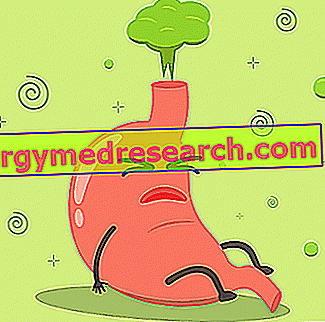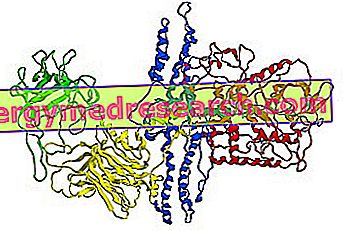Introduction and in-depth analysis
Colitis, better known as irritable bowel syndrome, is a fairly common disorder that affects about 15% of the population. The symptoms of colitis are classic: abdominal pain associated with cramps, feeling of swelling and weight accompanied by constipation and / or diarrhea. Most people can control these symptoms simply by adjusting their diet, using some drugs in the acute phases and keeping stress under control.
ColitisCause of ColitisSymptoms of colitisDiagnosisColite careCulitis drugs ColitisDiet and colitis Ulcerative colitis


The term "colitis" means a generic inflammation of the colon. This inflammation can arise due to bacterial or viral infections (food, drugs, etc.), diseases (gout and diabetes) or become a chronic form without a specific cause (ulcerative colitis, Crohn's disease). ).
In this article we will talk mainly about irritable bowel syndrome, another form of particularly widespread colitis, not serious, but extremely annoying.
To understand the causes of origin, the symptoms and treatments of this particular form of colitis, we must first take a brief look at the anatomy and physiology of the colon.
The colon is the terminal tract of our intestine, where digestion residues, now poor in nutrients, arrive. The large intestine, of which the colon is a part, has the function of absorbing this residual portion of water and mineral salts, at the same time favoring the formation and evacuation of the faeces.
The colon is characterized by the presence of a very rich bacterial flora. These microorganisms perform fermentative and putrefactive processes that affect digestion residues (especially fibers and proteins). These processes lead to the formation of amines, acids, gases and pigmented substances that give the characteristic color to the faeces.
Thanks to energetic contractions of the colon (called mass movements), which occur only a few times during the day, the fecal mass proceeds along the large intestine until it collects in the rectal ampulla.
Irritable bowel syndrome is also known as nerve colitis, as it is most often caused by severe psychic stress (examination diarrhea, an important meeting, etc.). Our intestine can be compared to a second brain, as it derives from a kind of extension of the nervous system. During embryonic development both these structures are sensitive to the common action of some cells that produce peptides (substances with hormonal action of protein origin).
This affinity between brain and intestine is maintained even after fetal life and, from the point of view of neuroendocrine organization, these two structures remain largely connected throughout life. Some hormonal substances produced under nerve stimulation therefore act both on the brain and, unconsciously, on our intestines. As a result, everything that happens in the brain tends to affect intestinal function.
If the sensitive terminations that innervate the intestine are particularly sensitive to this type of stimulus, the subject has a high probability of suffering from colitis. In particular stress, restrained anger, intense emotions, anxiety, etc. they can go to contract, even violently, the walls of the colon, causing or aggravating the classic symptoms of colitis.
Causes of Colitis
Alongside the psychological factors we have just seen, colitis can arise or worsen also due to:
- diet (hypersensitivity or intolerance to certain foods, inadequate nutritional style, poor in water or fiber);
- menstrual cycle (the intestine is quite sensitive to changes in female sex hormones);
- alteration of the normal intestinal flora, with an increase in pathogenic microorganisms;
- chronic parasitic infestation of the intestine.
INCIDENCE OF THE COLITES:
Prevalence around 15% of the population, with a double frequency in women compared to men (10.7% in women and 5.4% in males).
SEE ALSO: SEE ALSO: Colon cancer
Anatomy and physiology of the colon



